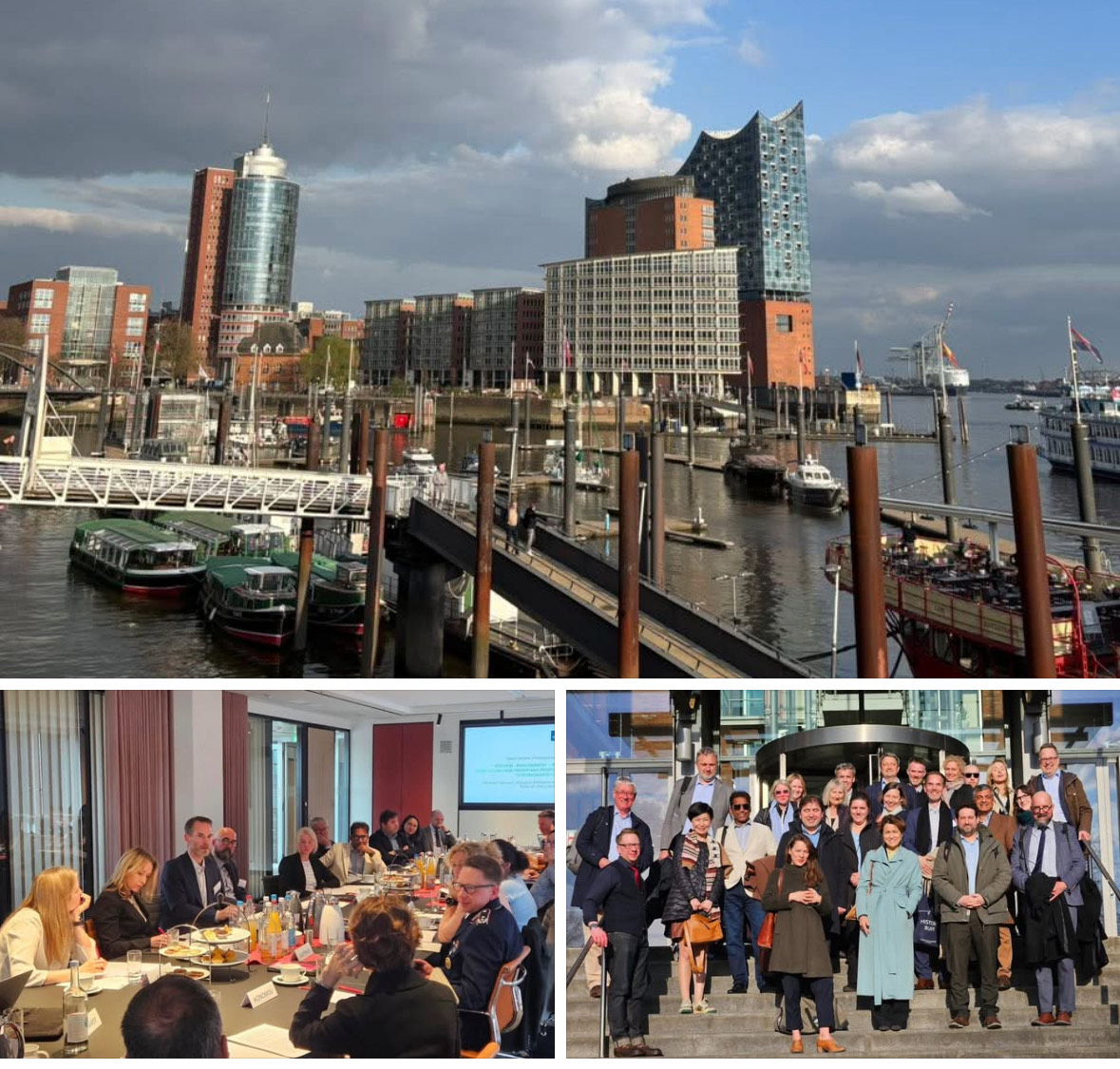
8. April 2025, 12:00-19:00
Hamburg, Körber Foundation Headquarters
CHIOS and Körber-Stiftung
At the inaugural CHIOS-Körber Roundtable, held on 8 April 2025 at the Körber-Stiftung headquarters in Hamburg, thirty scholars, politicians, officials, and representatives from the armed forces, think tanks, and NGOs met to discuss and place Zeitenwende in a historical and global context.
Two broadly conceived panels provided a structure for our dialogues:
We were first taken on a tour d’horizon of the internal German and West European perspectives on Zeitenwende; then the European challenges and concerns were placed in a broader global context. This first panel was more historically conceived, asking the essential question: “What is the name of the Beast?” In short, we thus explored what kind of rupture we are currently witnessing, how we got here, and how it is actually perceived from different vantage points.
The second panel focused on the core themes of reform, realignment, and resilience. Starting from today’s situation, this panel thus essentially looked ahead. It first offered sobering views from the Baltic states and from Ukraine – and a nuanced strategic assessment of the rapidly changing geopolitics of Northern Europe and the Arctic. At the end, the panel then addressed the elephant in the room: How are Europe and the world to deal with America under Trump – and how far can and should one try to build an international order without or around the United States?
From the debates five important perspectives emerged, which cut across the two panels and indeed combine deeper historical lessons and recommendations for how to renew order. These essentially also represent five inherent tensions that need to be resolved:


© 2025 CHIOS. All Rights Reserved.